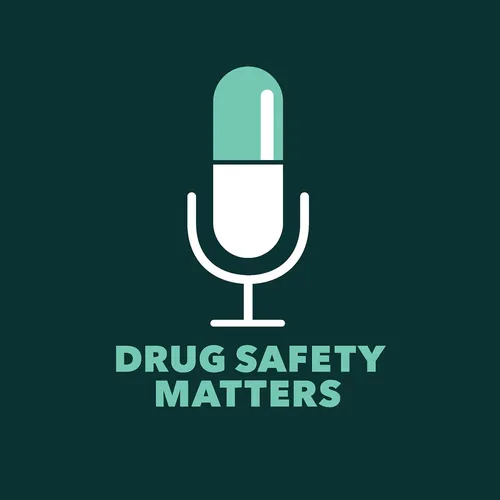
Drug Safety Matters
Drug Safety Matters brings you the best stories from the world of pharmacovigilance. Through in-depth interviews with our guests, we cover new research and trends, and explore the most pressing issues in medicines safety today. Produced by Uppsala Monitoring Centre, the WHO Collaborating Centre for International Drug Monitoring.
The views and opinions expressed in the podcast are those of the hosts and guests respectively and, unless otherwise stated, do not represent the position of any institution to which they are affiliated.
- Update frequency
- every 34 days
- Average duration
- 30 minutes
- Episodes
- 56
- Years Active
- 2020 - 2025

#8 How do we change behaviour around antimicrobial resistance?
Antimicrobial resistance (AMR) is not only a biological issue, but a complex social problem. As a consequence, changing the way patients, healthcare professionals and policymakers think about antibio…

Uppsala Reports Long Reads – Into the infodemic
As the COVID-19 pandemic spread around the world, so did waves of viral misinformation. For pharmacovigilance manager Marco Tuccori, fighting the “infodemic” is a massive, but necessary, battle.
This …

#7 The challenge of rare diseases – Christina Ström Möller
By definition, a rare disease is one that only affects a handful of people in the world. But with more than 300 million people collectively affected by these conditions and only few approved treatmen…

Uppsala Reports Long Reads – Africa integral to evolution of pharmacogenomics research
As the cradle of modern humanity, the African continent is home to populations with high levels of genetic diversity. But while this diversity has implications for the safety and efficacy of many dru…

#6 Intuition in pharmacovigilance – Eugene van Puijenbroek
In the age of evidence-based medicine, we may be tempted to dismiss intuition – the quick and automatic thought process we call “sixth sense” or “gut feeling” – as unscientific guesswork. But in clin…

Uppsala Reports Long Reads – Patient's advocate
In November 2020, longstanding UMC director Marie Lindquist began her well-earned retirement, leaving the reins of the organisation to her successor Hervé Le Louët. As she prepared to open a new chap…

Uppsala Reports Long Reads – Vaccination errors risk harm and damage trust
Medication errors with vaccines can harm individual patients, but when they also undermine trust in public health programmes, serious problems can ripple across entire communities – as the Samoan hea…

#5 Restoring invisible and abandoned trials – Peter Doshi
Clinical trials are the “gold standard” of evidence-based medicine – the best way we have to test whether a drug is safe and effective before it enters the market. But if trial data is poorly reporte…

#4 Communicating science through film – Matthew Barwick
Communication and public outreach are an important part of a scientist’s job. But researchers often find it daunting to translate their expert knowledge for a lay audience. In this episode, UMC’s vid…

Uppsala Reports Long Reads – Found in space
When reporting adverse reactions to drugs, people can choose from a plethora of different terms to describe their experience. But that makes it difficult and time-consuming for analysts to tell how s…

Uppsala Reports Long Reads – 10 critical steps for patient safety
How do we minimise the harm caused to patients by medicines and medical devices? In October 2019, a diverse, multi-stakeholder group met in Erice, Italy and drew up a 10-point plan for improving pati…

#3 Navigating the plant names jungle – Bob Allkin
Herbal substances can be found in a number of pharmaceutical drugs, cosmetics and food supplements – so it's not surprising that using plant names inconsistently can have serious health consequences.…

#2 Why we should listen to patients – Linda Härmark
As the end users of medicines, patients can provide first-hand information on side effects. The issues they report add a richness to our understanding of medicine safety that we could never achieve b…

Uppsala Reports Long Reads – Philosophy of science meets patient safety
Most of us want healthcare to be both patient-centric and evidence-based. But are those two goals compatible? Can we tailor healthcare to our unique circumstances, while relying on the average stati…

Uppsala Reports Long Reads – Ending the pregnant pause
Most women are prescribed some form of medication during their pregnancy. Yet we know very little about the safety of those medicines when they’re used during pregnancy or breastfeeding. New collabor…

#1 Fighting the fakes – Aline Plançon
Fake medicines claim at least 200,000 lives every year, with the World Health Organization estimating that 1 in 10 medicines worldwide is now substandard or falsified. But with the market in illicit …